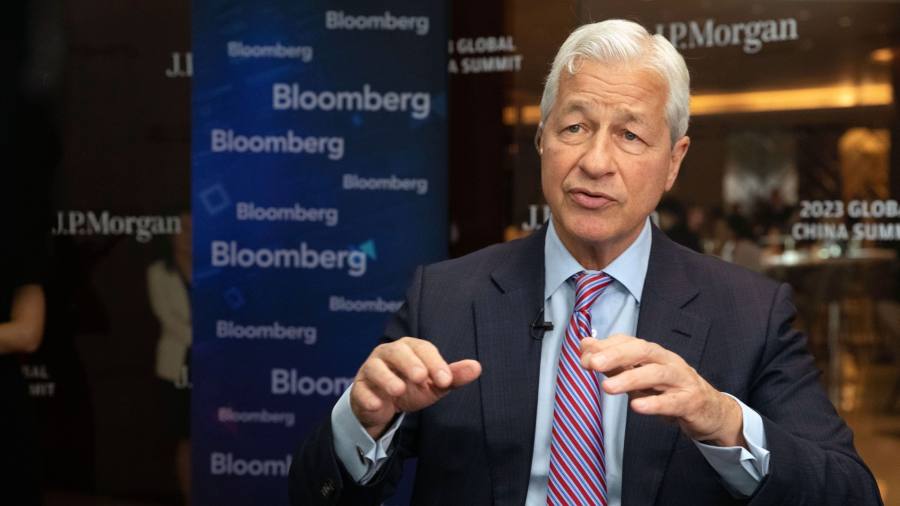This week, for the first time in several years, JPMorgan held its Global China Summit in mainland China. The Shanghai conference gathered nearly 3,000 attendees from around the world, under the strapline “Ready for Renewal”.
On the face of it, the event was meant to be another example of China’s reopening to international business post-pandemic. But rather than a cause for open celebration, it was a highly cautious affair as typified by the US bank’s approach to its own event.
With the exception of one interview on Bloomberg TV from chief executive Jamie Dimon and a few with domestic media, the conference took place entirely behind closed doors in a just-about-successful exercise in avoiding any political landmines.
In this respect, it encapsulated an increasingly important principle for foreign businesses on the mainland. If in an American world, all publicity is good publicity, then in China, publicity is very often bad, even if it is sometimes unavoidable.
One observer of China, who attended the conference, said the general environment for communication within the country was the worst he had seen over many decades of experience. At the event itself, Henry Kissinger, who this week turned 100 and was apparently serenaded by a chorus of Happy Birthday, emphasised the need to “talk” in a private video link from the US.
But businesses with major ambitions in China are caught in the tensions between Beijing and Washington. Dimon, in private comments at the event, said the “complexity” of the international order now surpassed that seen during the cold war.
In the absence of being able to either speak freely or remain silent, peculiar contortions arise. At press conferences held by the Chinese government, the language is not only scripted but carefully curated to avoid any surprises. Such an approach far predates the Communist party, given it is widely described in terms used for the style of the formulaic essays required for Ming dynasty civil service exams.
It is rare that foreign businesses are required to communicate within mainland China but increasingly, they opt for a similar approach when they do. A participant at the JPMorgan conference complained that panels at the event seemed very scripted.
Although pre-pandemic China would not have been described as an environment conducive to open speech, the zero-Covid era shifted the tone significantly. Criticism of the government’s radical attempt to eliminate coronavirus was essentially outlawed and all media coverage of the process tightly controlled.
The zero-Covid regime was abruptly abandoned at the end of last year, but some of its practices linger: a separate Shanghai conference this week, hosted by the New Development Bank, required participants to take a PCR test within 12 hours of the 9.30am start.
And the chill on discourse continues. Even in a week that marked the first anniversary of the ending of Shanghai’s two-month lockdown, one of the most extraordinary events in modern history, there was scarcely any discussion of it.
Dimon is a sufficiently respected figure in China that he was almost immediately forgiven for joking in Hong Kong in 2021 that his bank would outlast the Communist party. And this week, while he emphasised long-term commitments in private, his public comments included gentle criticism of the Chinese government and “uncertainty” it has produced.
But Dimon was also unable to answer repeated questions on whether he would meet top national officials. And when he met Chen Jining, the top Communist party official in Shanghai, a day before the conference, JPMorgan declined to comment on what it described as a “private” meeting. The state media had by this point already published an account of the meeting on social media, including points “expressed” by Dimon related to supporting Shanghai that went significantly beyond his own public comments.
Such caution points to a broader issue. The implications for other forms of language, such as investment bank research, economic analysis or even the way in which businesses internally transmit information from their mainland operations to headquarters in Europe or the US, are poorly understood. At the JPMorgan conference, speakers were widely craving more communication. The irony is that the event itself had become co-opted into an environment in which that has largely become impossible.
Read the full article here




